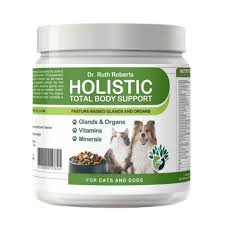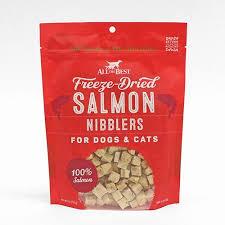The Benefits of Dog Supplements
Dogs are more than just pets; they are beloved members of our families. As responsible pet owners, we want to ensure that our furry friends live long, healthy, and happy lives. One way to support their well-being is by incorporating supplements into their daily routine.
Why Consider Dog Supplements?
Just like humans, dogs can benefit from additional nutrients that may not be present in their regular diet. Dog supplements can help address specific health concerns, fill in nutritional gaps, and support overall vitality.
Common Types of Dog Supplements
- Joint Health: Supplements containing glucosamine and chondroitin can help maintain healthy joints and mobility, especially in senior dogs or breeds prone to joint issues.
- Skin and Coat: Omega-3 fatty acids and biotin supplements promote healthy skin, a shiny coat, and reduce shedding.
- Digestive Health: Probiotics and digestive enzymes can aid in digestion, reduce gastrointestinal issues, and support a healthy gut flora.
- Immune Support: Antioxidants like vitamins C and E help boost the immune system and protect against diseases.
Consult Your Veterinarian
Prior to introducing any new supplements to your dog’s diet, it is crucial to consult with your veterinarian. They can provide guidance on the most suitable supplements for your dog’s individual needs based on factors such as age, breed, health condition, and diet.
In Conclusion
Adding supplements to your dog’s daily routine can be a proactive way to enhance their overall health and well-being. By providing them with essential nutrients that may be lacking in their diet, you are investing in their long-term health and happiness.
Essential Tips for Safely Choosing and Using Dog Supplements
- Consult with a veterinarian before starting your dog on any supplements.
- Choose supplements specifically designed for dogs to ensure safety and effectiveness.
- Follow the recommended dosage instructions to prevent overdosing or underdosing.
- Monitor your dog’s response to the supplements and adjust as necessary.
- Consider the age, breed, size, and health condition of your dog when selecting supplements.
- Store dog supplements in a cool, dry place away from direct sunlight.
Consult with a veterinarian before starting your dog on any supplements.
It is highly recommended to consult with a veterinarian before introducing any supplements to your dog’s diet. A veterinarian can offer valuable insights and guidance tailored to your dog’s specific needs, ensuring that the supplements are safe and appropriate for your furry companion. By seeking professional advice, you can make informed decisions that prioritize your dog’s health and well-being.
Choose supplements specifically designed for dogs to ensure safety and effectiveness.
When considering dog supplements, it is essential to choose products that are specifically formulated for dogs. Opting for supplements designed with canine health in mind helps ensure both the safety and effectiveness of the product. Dog-specific supplements take into account the unique nutritional needs and physiological differences of dogs, providing targeted support for their well-being. By selecting supplements tailored to dogs, pet owners can confidently enhance their furry companions’ health with products that are both safe and beneficial.
Follow the recommended dosage instructions to prevent overdosing or underdosing.
It is crucial to follow the recommended dosage instructions when giving your dog supplements to prevent the risks of overdosing or underdosing. Proper dosing ensures that your dog receives the intended benefits of the supplements without any adverse effects. Overdosing can lead to toxicity and potential harm to your dog’s health, while underdosing may result in ineffective treatment. Always consult with your veterinarian if you have any doubts or concerns about the correct dosage for your furry companion.
Monitor your dog’s response to the supplements and adjust as necessary.
It is important to closely monitor your dog’s response to the supplements you introduce and make adjustments as necessary. Pay attention to any changes in behavior, appetite, or overall well-being. If you notice any adverse reactions or if the desired effects are not being achieved, consult your veterinarian for guidance. Every dog is unique, and what works well for one may not work the same for another. By observing and adapting to your dog’s individual needs, you can ensure that they receive the right support from their supplements.
Consider the age, breed, size, and health condition of your dog when selecting supplements.
When choosing supplements for your dog, it is essential to consider factors such as their age, breed, size, and current health condition. Different dogs have varying nutritional needs based on these factors, so selecting the right supplements tailored to your dog’s specific requirements can help support their overall health and well-being effectively. Consulting with your veterinarian to determine the most suitable supplements for your dog based on these considerations can ensure that they receive the necessary nutrients to thrive and lead a healthy life.
Store dog supplements in a cool, dry place away from direct sunlight.
It is essential to store dog supplements in a cool, dry place away from direct sunlight. Proper storage conditions help maintain the effectiveness and quality of the supplements. Exposure to heat and sunlight can degrade the ingredients in the supplements, reducing their potency and efficacy. By storing dog supplements correctly, you ensure that your furry companion receives the full benefits intended by the product, promoting their overall health and well-being.




